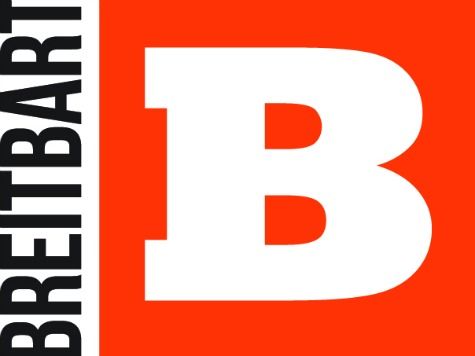Hezbollah chief Hassan Nasrallah took the opportunity of a ceremony for the “martyrdom anniversary” of Hezbollah fighters killed in Syria to tout his group’s effectiveness at fighting terrorism, as well as its success at thwarting sinister American and Israeli plots.
Nasrallah “stated that the sacrifices made by Hezbollah martyrs were behind all victories over US-Israeli plots in the region,” as reported by Iran’s PressTV.
“He noted that the United States has long sought to designate Hezbollah as a terrorist outfit, and has even leveled unsubstantiated allegations of involvement in drug trafficking against the resistance movement,” PressTV continued. “Nasrallah then advised U.S. statesmen to launch a full-scale investigation into the drug-related activities of their own intelligence bodies.”
Of his own group, Nasrallah reportedly said Hezbollah was “one of the most effective forces in the fight against terrorism across the Middle East region.”
Someone should tell Nasrallah that we not only investigate that sort of thing in America, we make movies about it, but no one goes to see them. (Speaking of which, Nasrallah threw in a little movie criticism as a free bonus, advising audiences not to see the new movie The Post because director Steven Spielberg is one of Those People and might divert some of the box office receipts to Israel.)
Contrary to PressTV’s summary of Nasrallah’s remarks, the United States is not “seeking” to designate Hezbollah as a terrorist organization; it has been so designated by the U.S. State Department since 1997.
Hezbollah is, as a matter of indisputable fact, a gigantic drug-running operation. The only reason it has not suffered more consequences for its billion-dollar drug trade is that the Obama administration scuttled a major investigation into Hezbollah cocaine trafficking to protect the Iran nuclear deal. Now that Obama is gone, the investigation of Hezbollah is ramping up again, and Nasrallah has good reason to be nervous about it.
“Hezbollah has a clear religious position on this: drug trafficking is forbidden, including among the hostile Israeli position,” Nasrallah claimed.
According to PressTV, Nasrallah segued into some standard-issue Israel-bashing, vowing that under Hezbollah’s influence the Lebanese government will never “normalize ties with the Zionist regime.”
He then accused Israel of masterminding a recent car bomb attack in the Lebanese city of Sidon that wounded a member of the Palestinian Hamas movement, charging that the attack was “the beginning of a dangerous Zionist scheme” to undermine Lebanon’s security.
A major camp for Palestinian refugees is located near Sidon. The victim of the car bombing, Mohammad Hamdan (a.k.a. “Abu Hamza”) is a fairly high-ranking member of Hamas, which immediately blamed the attack on Israel, as did the governing Palestinian Fatah party. The Palestinian groups believe Israel targeted Hamdan because he was involved in a few “operations” in Israel.
The Hezbollah chief said his organization expects Lebanese authorities to “treat this incident as a serious violation of Lebanese sovereignty.”
Unsurprisingly given that the event he spoke at was a commemoration for Hezbollah fighters killed in Syria, Nasrallah denounced the news that America plans to maintain military forces in Syria over the long term, in part to combat al-Qaeda and prevent a resurgence of the Islamic State.
“The United States plans to keep its military deployment in Iraq and Syria under the pretext of preventing the return of the terrorists. This is while the entire world knows it was the U.S. administration that created the Takfiri group,” he railed.
Takfiri means an apostate or false Muslim; the Hezbollah leader was claiming the United States created the Islamic State to make true Muslims like himself look bad, and to justify further military interventions in the Middle East.
“Iraqis and Syrians can well prevent the resurgence of Daesh, and do not need U.S. help in this regard,” Nasrallah insisted, using another name for ISIS.
[contf] [contfnew] 
Breitbart
[contfnewc] [contfnewc]





